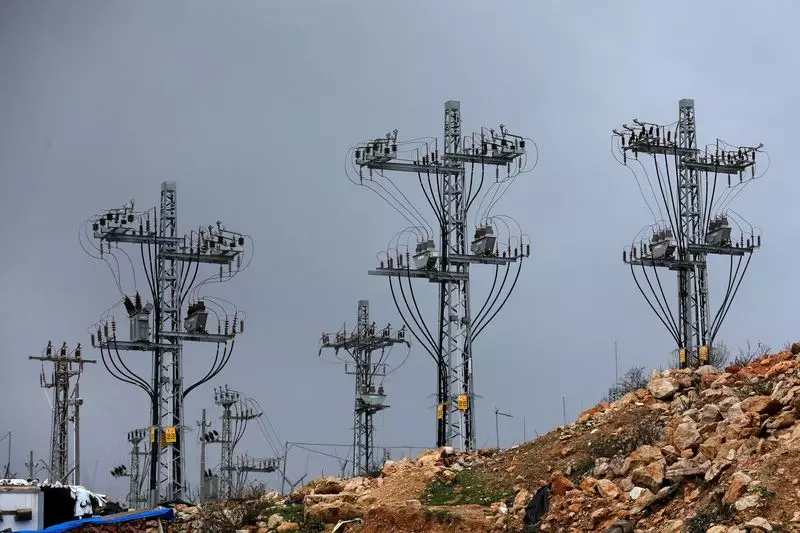The ongoing conflict between Israel and the Palestinian Authority (PA) has long been characterized by financial stratagems and political maneuvering, particularly in relation to the collection and allocation of taxes. Recent developments, spearheaded by Israel’s Finance Minister Bezalel Smotrich, highlight a significant shift in how tax revenues collected on behalf of the PA are utilized. This article examines these developments, contextualizes their implications, and considers the broader ramifications for Israeli-Palestinian relations.
Tax revenue collection is a critical part of Israel’s administrative relationship with the PA. Under a long-established arrangement, Israel collects taxes on goods that traverse into the West Bank, retaining funds until they are transferred to the PA. However, as tensions mount, recent decisions made by Israeli officials have transformed these financial instruments into political tools. On a recent Sunday, Smotrich announced that nearly 800 million shekels, which were initially intended to support administrative expenses in Gaza, would instead be diverted to pay off the PA’s substantial debt to the Israel Electric Company (IEC).
The decision comes in the wake of escalated hostilities following the devastating Hamas-led attacks on October 7, 2023. By withholding funds, Smotrich aims to exert pressure on the PA, particularly in light of accusations that it enabled those attacks. This redirection of funds indicates that financial support for the PA, intended to foster stability and peace, is now increasingly viewed through a lens of political retribution, complicating already strained relations.
Impacts of Withheld and Reallocated Funds
The ramifications of withholding funds extend far beyond immediate financial constraints. As of January 2024, the Palestinian Finance Ministry reported that over 3.6 billion shekels have been withheld by Israel, exacerbating an already precarious economic situation. The PA’s ability to pay public sector wages has been severely impacted, with salary payments only reaching approximately 50-60% of their total obligations. This financial strain not only deepens the socio-economic crisis within Palestinian territories but also incites public unrest both against the PA and Israel.
Moreover, in a controversial move, Israel has been deducting amounts equivalent to so-called “martyr payments” made by the PA to families of deceased or imprisoned individuals labeled as militants by Israeli authorities. These deductions serve to further legitimize Israeli financial maneuvers as punitive measures while simultaneously igniting outrage among Palestinians who view these allocations as vital family support.
The international community, particularly Norway, plays an intricate role in this financial landscape. The Palestinian Finance Ministry confirmed an agreement with Norway to release part of a fund specifically earmarked for financial support to Gaza, which had been frozen due to tensions surrounding the PA’s governmental actions. These funds, totaling approximately 767 million shekels, are set to be utilized for purchasing fuel, a critical resource for sustaining daily life.
However, the PA faces the dual challenge of negotiating with international partners for the release of funds while managing the realities of an economy under siege. Each financial maneuver—from the withholding of tax revenues to the complexities introduced by international agreements—serves to underscore the precariousness of the PA’s position. The ongoing financial crisis has detrimental effects on public services and governance, which may further empower extremist groups that thrive in the guise of providing support to struggling communities.
A Path Forward Amidst Uncertainty
The developments surrounding the allocation of tax revenues and PA debt reflect a converging crisis rooted deeply within the intersection of finance and politics. While the immediate focus may be on resolving the financial tussle between Israel and the PA, the broader context necessitates a more nuanced approach to Israeli-Palestinian relations.
A sustainable path forward will require not only reconstructing financial flows to alleviate the immediate crises but also fostering a dialogue that addresses the core issues underpinning the conflict. Without such an approach, efforts to stabilize the region will remain hindered by financial hostilities that intertwine economic survival with political legitimacy, ultimately destined to perpetuate the cycle of conflict.
As the situation remains fluid and complex, both parties and the international community must navigate these shifting dynamics with strategic consideration and a commitment to peace. The integration of humanitarian, economic, and political strategies is essential for paving the way toward a more stable and equitable future for both Israelis and Palestinians.

